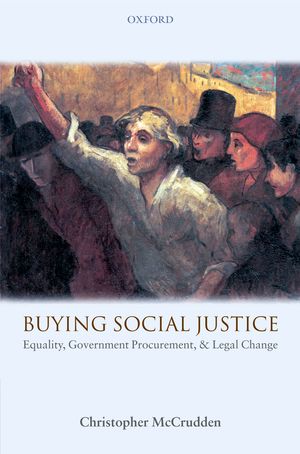
Governments spend huge amounts of money buying goods and services from the private sector. How far should their spending power be affected by social policy? Arguments against the practice are often made by economists - on the grounds of inefficiency - and lawyers - on the grounds of free competition and international economic law.
Buying Social Justice analyses how governments in developed and developing countries use their contracting power in order to advance social equality and reduce discrimination, and argues that this approach is an entirely legitimate, and efficient means of achieving social justice.
The book looks at the different experiences of a range of countries, including the UK, the USA and South Africa. It also examines the impact of international and regional regulation of the international economy, and questions the extent to which the issue of procurement policy be regulated at the national, European or international levels.
The role of EC and WTO law in mediating the tensions between the economic function of procurement and the social uses of procurement is discussed, and the outcomes of controversies concerning the legitimacy of the integration of social values into procurement are analysed. Buying Social Justice argues that European and international legal regulation of procurement has become an important means of accentuating the positive and eliminating the negative in both the social and economic uses of procurement.